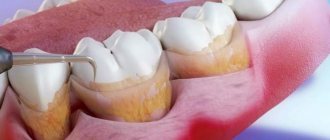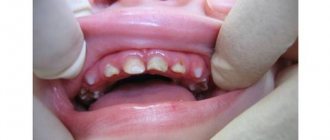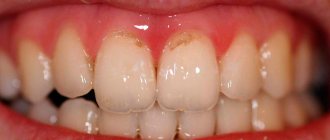.
Many girls experience such an unpleasant phenomenon as bad breath during pregnancy. This may be associated with diseases of the oral cavity, gastrointestinal tract, or be a consequence of changes in the body.
During pregnancy, a woman’s body undergoes hormonal changes, her sense of smell becomes more acute, and the expectant mother begins to smell odors that are almost not there.
Bad breath during pregnancy brings a lot of inconvenience not only to the woman herself, but also to those around her.
You need to correctly identify the causes of the odor in order to quickly deal with it.
Bad breath during pregnancy is common
Reasons for appearance
Bad breath is not only caused by pregnancy. Due to the fact that while expecting a child, a woman’s immunity decreases, there is a threat of developing the disease. Factors that can cause bad odor from the mouth are:
- the presence of pathologies of the gastrointestinal tract,
- hormonal imbalances,
- unhealthy diet
- infection of the nasopharynx,
- regular nausea,
- use of multivitamins.
Do you feel nervous before visiting the dentist?YesNo
Severe halitosis becomes active during the first trimester, when the fetus takes calcium from the mother, which causes changes in the enamel and a decrease in its protective properties. Pregnancy is accompanied by softening and looseness of the tissue. This provokes the development of gingivitis and caries. Preventing such ailments with calcium supplements will prevent this problem.
Folk remedies for the prevention and removal of unpleasant odors
When a woman has bad breath, she feels extremely uncomfortable and tries to resort to a variety of methods to get rid of what causes discomfort.
Popular folk methods for solving this problem:
Infusion of medicinal herbs
Preparation: take mint, sage and chamomile in equal proportions (a honeycomb spoon), pour boiling water and let it brew for several hours.
Application: rinse your mouth with the resulting decoction at the end of each meal.
Rinsing with sage decoction eliminates odor
Oak bark infusion
Oak bark has healing properties; it can strengthen gums and relieve inflammation.
Preparation: pour boiling water (200 ml) into a tablespoon of oak bark and let it brew for several hours.
Application: rinse your mouth with the resulting decoction at least twice daily before meals.
Possible complications
It is important while waiting for a child to avoid colds and sore throats, which can cause bad breath odor. If it occurs due to illness, it is necessary to consult a geneticist to exclude the development of pathology in the fetus. It is worth noting other factors that provoke halitosis in people at risk:
- pathology of the thyroid gland,
- hormonal imbalances,
- excess weight,
- pathologies of the salivary gland,
- disturbance of intestinal microflora,
- infections, inflammatory processes in the oral cavity,
- immune system disorders.
After an examination by a dentist, an examination is carried out by a therapist, who prescribes consultation with specialists of a narrow focus.
Iron taste in the mouth during pregnancy
A metallic taste also often appears during gestation. The taste of iron in the mouth in women appears due to a lack or excess of iron. Anemia often accompanies pregnancy.
Disturbances in the sense of taste and the taste of blood in the mouth are caused by reasons such as bleeding gums and decreased hemoglobin levels. This is the main cause of metallic aroma and taste. It is important to monitor your health and not ignore possible symptoms of the disease. A visit to the dentist and gastroenterologist will help solve the problem.
Diagnostics
The appearance of an unpleasant breath odor requires an examination, based on the results of which treatment is prescribed. Any pathology that causes halitosis can adversely affect the condition and development of the fetus. For this reason, it is necessary to consult a doctor outside of the schedule to obtain appointments for the following types of studies:
- a vaginal smear (bacteriological) for flora, which will help determine the composition of bacteria, estimate the number of pathogens, name the source of infection,
- urine examination, bacterial culture if it has a non-standard odor. We need to stop the spread of infection. Severe toxicosis causing changes in urine requires treatment,
- examination by a gastroenterologist, otolaryngologist or dentist. Present infections must be eliminated due to the possibility of their harmful effects on the fetus. Problems with the gastrointestinal tract do not allow the absorption of necessary substances.
Sometimes the source of an unpleasant odor can be breathing through the nose in diseases of sinusitis, adenoids, and polyps. To identify its location, the doctor evaluates each individual type of odor: pulmonary, nasal, oral.
Smell in the first trimester
Especially often, pronounced oral odor occurs in the early stages of pregnancy. In this case, the cause of the unpleasant aroma is calcium deficiency. Also, under the influence of hormonal levels, changes occur in the composition of salivary fluid. This condition manifests itself in the fact that problems arise with teeth and gums; they become very vulnerable at this time.
The composition of salivary fluid changes under the influence of such factors: frequent stress, abuse of drugs, under the influence of which there is a negative effect on hormonal levels and on the level of vitamins and minerals in the body.
Treatment of unpleasant odor
If the unpleasant odor is caused by natural factors, the only way out for a woman is to simply be patient. At this time, you need to maintain hygiene: brush your teeth and tongue at least twice a day, rinse your mouth, take a shower, use cosmetics. Pastes and gels that include urea peroxide can help eliminate halitosis. Rinses containing alcohol can reduce salivation and dry mouth. Their use for therapy is not recommended.
If bad breath odor is not caused by poor hygiene, you need to contact an experienced doctor. He will examine the woman and identify the causes of halitosis. Depending on them, the specialist selects therapy. The procedures include the removal of plaque, tartar, and professional teeth cleaning. There are methods for treating halitosis based on the causes:
- Morning sickness. Rinse the mouth several times.
- Consumption of the dish. Using chewing gum.
- Oral diseases. Rinsing with antiseptic agents that eliminate anaerobic microorganisms (Triclosan, Chlorhexidine).
- Lack of calcium. Taking medications, eating foods rich in calcium.
You should start revising your diet, stopping the consumption of strong-smelling foods, the smell of which repels others. For example, onions, garlic, spicy foods and coffee.
Elimination of halitosis caused by pathological processes requires treatment of the disease. For this reason, it is better to contact a specialist who will conduct an examination and prescribe therapy that is safe for the mother and fetus.
Effective folk remedies to combat odor
If your breath stinks during pregnancy, you can eliminate this problem using simple recommendations:
- Do not hesitate to contact your doctor and inform him about your condition.
- Follow all the rules of personal hygiene, so problems can be resolved faster: clean your teeth in the morning and evening (remove plaque not only from the surface of the dentition, but also from the tongue and the inner surface of the cheeks), use floss to remove food particles and plaque in the interdental spaces, use rinses for the oral cavity (they can be herbal based).
- It is mandatory to replenish the lack of vitamins and minerals with the help of medications prescribed by the doctor. You should not use any means to saturate the body with vitamins and minerals on your own, only at the discretion of the doctor. In some cases, you can compensate for the lack of vitamins with the help of a properly selected diet (vegetables, fruits, dairy products).
- Refresh the oral cavity with chewing gum, special sprays, and lozenges.
During this period, the woman’s body experiences enormous stress. The following remedies can help him eliminate the problem of unpleasant odor:
- Infusion based on medicinal plants. To prepare it, you should take the following ingredients: peppermint, sage, chamomile. Pour boiling water over the herbs. Let it sit for several hours. Strain the finished broth and use for rinsing the mouth.
- You can also prepare an infusion of oak bark. With the help of this product, gums are strengthened, the severity of the inflammatory process is relieved, and breath is freshened. Pour a tablespoon of dry raw material into a glass of boiling water and let it steep for several hours. Use this product as a mouth rinse in the morning and evening, as well as after meals.
At the same time, the lack of fluid in the body should be replenished. To do this, you need to drink at least two liters of clean water during the day. Adjust your diet, exclude unhealthy foods from the menu, and add more fresh vegetables and fruits to it. It is imperative to visit a dentist for a preventive examination of the oral cavity, to treat caries, hygiivitis, and periodontitis at the stage of planning pregnancy or during it. Prevent exacerbation of chronic diseases of the digestive system.
Chief author and editor-in-chief: Makarskaya S.E., 29 years of experience.
Last revision: 01/30/2018
Folk recipes
In the fight against bad breath, natural remedies were used: lemon balm, chamomile, mint, etc. They were used to prepare decoctions that eliminate halitosis and have an antiseptic effect on the oral cavity. Products based on essential oils for this purpose reduce unpleasant odors for a short period. The most effective oils are mint, sage, and tea tree.
In pharmacies you can buy many herbal infusions and herbal remedies. Decoctions will provide good help in the fight against bad breath odor:
- 1 tbsp. l. mint, sage, chamomile, pour boiling water, leave for 2 hours. Use the resulting product to rinse your mouth every time after eating.
- 1 tbsp. l. oak bark, pour 200 ml of boiling water, leave for 1 hour. Use as a rinse before meals at least twice a day.
A pregnant woman needs to drink plenty of fluids due to lack of salivation.
The main cause of bad breath in pregnant women
Pregnancy changes a woman, changes her hormonal levels, behavior, habits, taste preferences, and so on. This is due to the fact that the baby, which is already actively forming in the tummy of its expectant mother, needs a lot of vitamins and microelements, as well as attention.
During the first trimester, the smell from your mouth can be particularly strong. This is due to the fact that it is at this time that the girl’s body uses up its calcium reserves, which is necessary for the formation and strengthening of tooth enamel and other body tissues.
A pregnant woman may smell unpleasant due to the fact that the composition of her saliva changes under the influence of hormonal drugs.
Additional symptoms are depression, constant stress, and frequent mood swings. If a girl exhibits any of these symptoms, she should definitely consult a doctor.
Prevention
You can prevent bad breath during pregnancy by following these rules:
- oral care - brushing your teeth twice a day, using dental floss, mouth rinses,
- if you have vitamin deficiency after nausea, you need to drink a glass of water, rinse your mouth,
- compensate for calcium deficiency by taking medications,
- avoid hypothermia,
- limit consumption of spicy and sweet foods,
- adjust the diet by adding foods that are beneficial for the growth and development of the fetus. Eat food in small portions.
Expecting a child is accompanied by unpleasant factors, but they can be easily dealt with by consulting a doctor and following basic hygiene rules.
How to eliminate an unpleasant odor
To eliminate an unpleasant taste in the mouth during pregnancy, you can use any means only after first consulting a doctor. Over time, the unpleasant sensation will disappear, and after childbirth, when hormonal levels stabilize, there will be no trace of this problem. It is allowed to rinse the mouth with antiseptic rinses (Miramistin, Chlorhexidine).
Additionally, brush your teeth after each meal and use herbal mouthwashes. Establishing nutrition will prevent metabolic failure. Proper drinking regimen will prevent a decrease in the production of salivary fluid and drying out of the oral mucosa. If you have vitamin deficiency, take medications prescribed by specialists.











